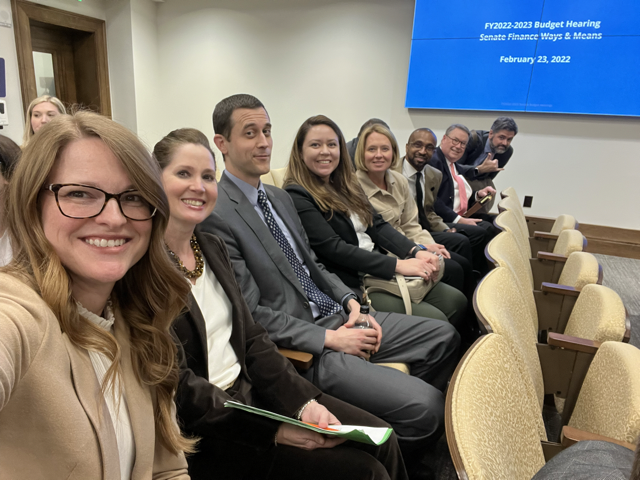
I’m honored and excited that the Greater Nashville Technology Council was recognized by TECNA as the recipient of the 2023 TECNA Innovation Awards for Public Policy & Advocacy, for helping to introduce and pass legislation to ensure that computer science education is available to every high school student in the state of Tennessee.
TECNA’s award provides recognition for a lot of work by many in the CS for TN coalition over four+ years to eventually pass the funded mandate that the state develop new middle school and high school education requirements and the necessary paid-for teacher professional development. And the work continues, to finish development and implementation of those requirements and teach those skills to students!
Like so much other great work that happens behind the scenes, it went unrecognized. My hope is to help tell the story of this grand effort by many and I’ve tried to enumerate and recognize community partners and NTC members who played a role in this effort. I’m sure I will fall short. If I’ve accidentally omitted you or your organization, please forgive me! I’d like to add you to this post so please let me know.
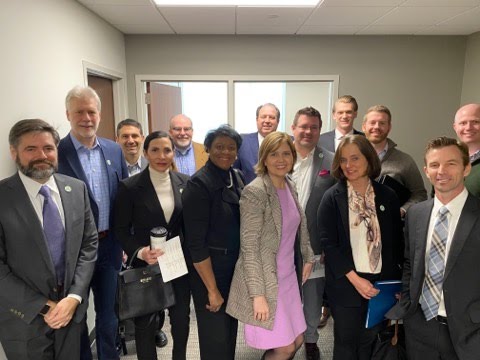 Efforts to pass this legislation started in 2018 when Meka Egwuekwe of Memphis’ Code Crew, worked with Memphis’ Seeding Success to introduce a bill to require the TN Department of Education to introduce a computer science requirement for high school graduation in Tennessee. Our lobbyist Baylor Swindell helped us to spot the legislation and we made it a priority. As we hosted Tech Hill Days in 2018, our members met with state legislators to help them understand the need for more tech education. We wanted policy makers to know that the tech industry supported teaching computer science in every classroom across the state. Rep. Mark White who headed up the House Education Committee was very supportive of the effort, but in 2018, like most first year pieces of legislation, the CS high school requirement didn’t pass. It did bring the Dept. of Ed to the table, which was a step in the right direction.
Efforts to pass this legislation started in 2018 when Meka Egwuekwe of Memphis’ Code Crew, worked with Memphis’ Seeding Success to introduce a bill to require the TN Department of Education to introduce a computer science requirement for high school graduation in Tennessee. Our lobbyist Baylor Swindell helped us to spot the legislation and we made it a priority. As we hosted Tech Hill Days in 2018, our members met with state legislators to help them understand the need for more tech education. We wanted policy makers to know that the tech industry supported teaching computer science in every classroom across the state. Rep. Mark White who headed up the House Education Committee was very supportive of the effort, but in 2018, like most first year pieces of legislation, the CS high school requirement didn’t pass. It did bring the Dept. of Ed to the table, which was a step in the right direction.
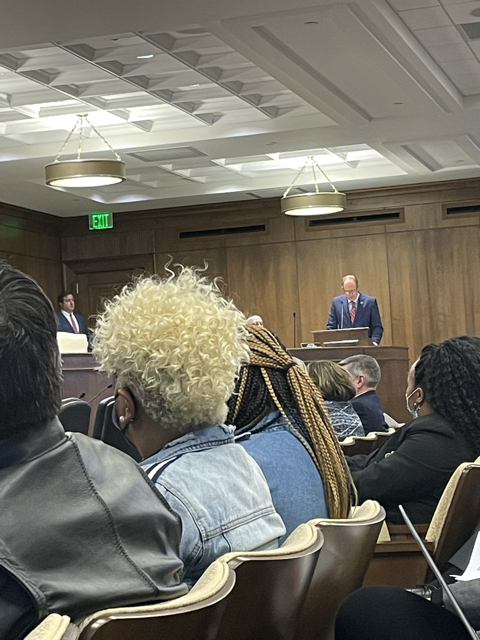 In the following years, even through the COVID pandemic, we helped to form and grow the CS for TN coalition — made up of education and tech industry organizations that had an interest in Tennessee making this significant educational advancement. In addition to Meka, members included Stacy Bassett, Alexis Harrington, Jared Bigham, Pat Miller, Juan Navarro, Bard Keeler, Ryan Mahoney, Michelle Brown, Jeff Morris, Katina Stavrou, Kel McDowell, Regina Winfree, Carla Askonas, Brandon Bruce, and others I unintentionally may be leaving out, representing organizations including Code.org, College Board, CodeCrew, TN Chamber of Commerce, TNREA, Williamson Chamber of Commerce, Seeding Success, Learning Blade, Thinking Media, Tennessee CAPS, Microsoft, Amazon, Schneider Electric, Greater Memphis IT Council, CHATech, Knoxville Technology Council, and the NTC. Over years, this core group of local and nationally based passionate advocates representing many stakeholders held regular organizing meetings leading up to, during session, and after session to keep the torch lit for improved tech education in Tennessee.
In the following years, even through the COVID pandemic, we helped to form and grow the CS for TN coalition — made up of education and tech industry organizations that had an interest in Tennessee making this significant educational advancement. In addition to Meka, members included Stacy Bassett, Alexis Harrington, Jared Bigham, Pat Miller, Juan Navarro, Bard Keeler, Ryan Mahoney, Michelle Brown, Jeff Morris, Katina Stavrou, Kel McDowell, Regina Winfree, Carla Askonas, Brandon Bruce, and others I unintentionally may be leaving out, representing organizations including Code.org, College Board, CodeCrew, TN Chamber of Commerce, TNREA, Williamson Chamber of Commerce, Seeding Success, Learning Blade, Thinking Media, Tennessee CAPS, Microsoft, Amazon, Schneider Electric, Greater Memphis IT Council, CHATech, Knoxville Technology Council, and the NTC. Over years, this core group of local and nationally based passionate advocates representing many stakeholders held regular organizing meetings leading up to, during session, and after session to keep the torch lit for improved tech education in Tennessee.
Between the 2019 – 2021 legislative sessions, the coalition advocated for legislation we helped to introduce that was simply for the funding to make available computer science classes to high school students and to educate teachers to provide the education. On the Tech Hill Days that the NTC hosted, member “regulars” like Charlie Apigian, Amy Henderson, Aaron Montlary, Christopher Rowe, Jeff Haithcoat, Louis Davis, and Tracy Guarino explained from an industry perspective the need for more tech talent. The data from the Middle Tennessee Tech Jobs Report produced by Amy Harris at MTSU was invaluable to describe the demand and supply and the skills needed as we testified before the House Education Committee. Meka testified about his hands-on experience teaching students and educators problem solving skills and coding. Others in the coalition across the state, like the Regina at the Greater Memphis IT Council and Brandon at Knoxville Tech Council with Politicode held their own impactful advocacy days with policy makers in-person and virtually over Zoom during COVID, which was a very new advocacy experience for all.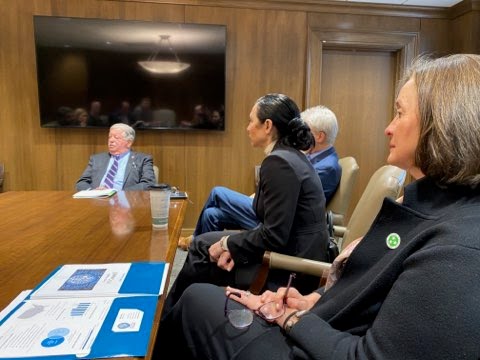
During this time, the administration’s educational priorities were of course on student literacy for the lost COVID time. After many conversations with the administration, in late 2021, the coalition had sufficiently convinced Governor Lee’s leadership and TN Department of Education leadership to add tech education as a priority. We urged that not just making high school classes available, but actually establishing educational requirements with funding for teacher training would be most impactful to ready students for the demands of today. These educational requirements would provide Tennesseans access to tech jobs that pay 84% higher than the median job in our region. Thankfully, Governor Lee’s bill passed in the 2022 legislative session and he signed it into law. It’s pretty great having the Governor’s support for legislation and we were thankful for it.
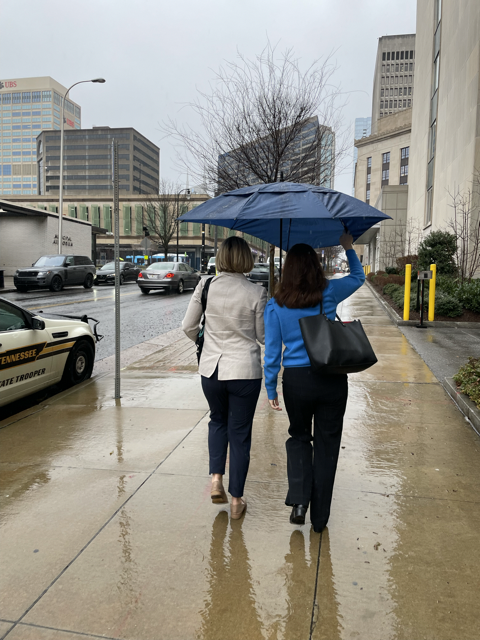 After the legislation passed, the work was not over! Follow-on efforts began to impact the eventual educational requirements that would still need to be developed. The team at TSIN including Brandy Stroker and Becky Ashe have worked to develop grassroots networks of the teachers and school administrators that were excited to teach these lessons in schools, as well as with the TN Dept of Education to develop proposals for the standards. We organized NTC members to share those proposals, aggregated their thoughts, and held discussions with TSIN to organize tech industry feedback on the educational requirements as they have worked through the process. Thanks to Chad Wasserman, John Wark, Bill Wright, Charlie Yielding, Jessica Burns, Cody Asbury, Charlie Apigian, Amy Harris, Eric Johnson, Carman Wenkoff, Christy O’Neal, Jeff Taylor, Jeremy Qualls, Tamara Rogers, Holly Rachel, and others who gave valuable input to these new tech education standards from HCA Healthcare, Nashville Software School, G-Squared Wireless, Cerecore, Slalom, Belmont University, MTSU, Vanderbilt, Dollar General, Tennessee State, Williamson County Schools, and Blacks in Tech.
After the legislation passed, the work was not over! Follow-on efforts began to impact the eventual educational requirements that would still need to be developed. The team at TSIN including Brandy Stroker and Becky Ashe have worked to develop grassroots networks of the teachers and school administrators that were excited to teach these lessons in schools, as well as with the TN Dept of Education to develop proposals for the standards. We organized NTC members to share those proposals, aggregated their thoughts, and held discussions with TSIN to organize tech industry feedback on the educational requirements as they have worked through the process. Thanks to Chad Wasserman, John Wark, Bill Wright, Charlie Yielding, Jessica Burns, Cody Asbury, Charlie Apigian, Amy Harris, Eric Johnson, Carman Wenkoff, Christy O’Neal, Jeff Taylor, Jeremy Qualls, Tamara Rogers, Holly Rachel, and others who gave valuable input to these new tech education standards from HCA Healthcare, Nashville Software School, G-Squared Wireless, Cerecore, Slalom, Belmont University, MTSU, Vanderbilt, Dollar General, Tennessee State, Williamson County Schools, and Blacks in Tech.
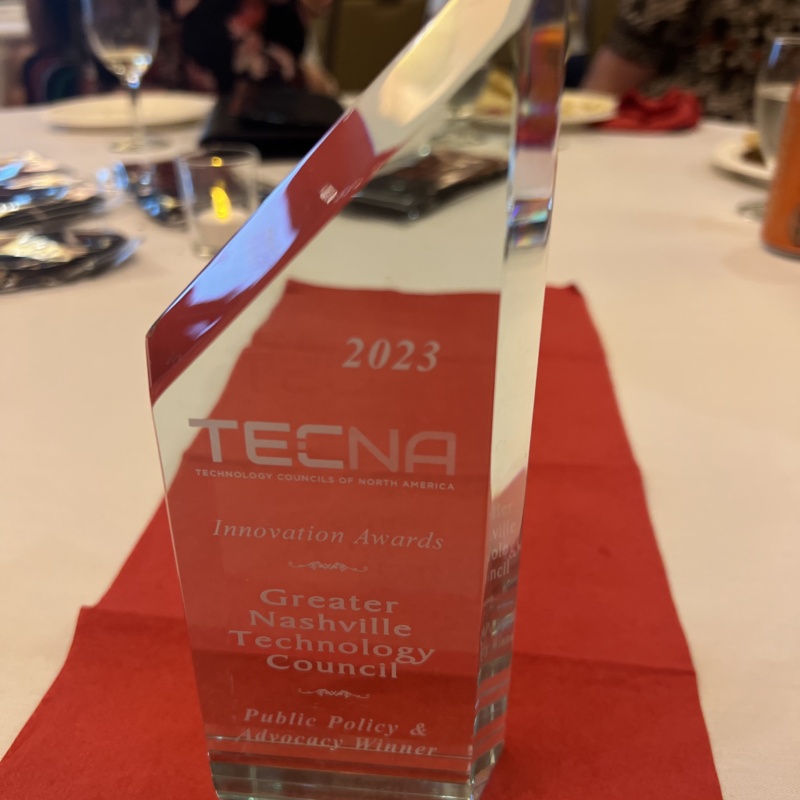 I’m proud of the NTC’s work to unite our members to advocate for local tech education, help grow a coalition of 18 organizations, see meaningful computer science education legislation to passage and enactment, and mold the tech education requirements. When it goes into effect, we estimate more than 60,000 Tennessee high school seniors will graduate having taken a computer science class, and another 77,000+ middle school students will have STEM, problem solving, or computer science education integrated into their curriculum before they enter high school.
I’m proud of the NTC’s work to unite our members to advocate for local tech education, help grow a coalition of 18 organizations, see meaningful computer science education legislation to passage and enactment, and mold the tech education requirements. When it goes into effect, we estimate more than 60,000 Tennessee high school seniors will graduate having taken a computer science class, and another 77,000+ middle school students will have STEM, problem solving, or computer science education integrated into their curriculum before they enter high school.
Because these numbers will recur every year, we’re dramatically increasing the number of students who have gained new skills and had even just a taste for tech. For many students that taste will develop into an interest, and combined with programs like Traveling Tech Day field trips and more tech professionals engaging with students, we’re collectively planting the seeds of our future tech workforce in Tennessee.